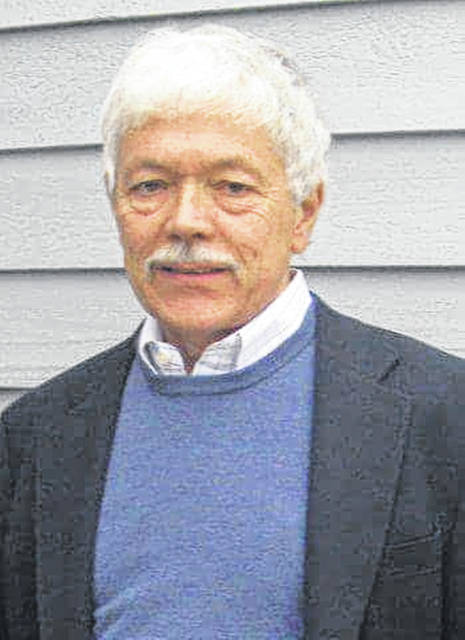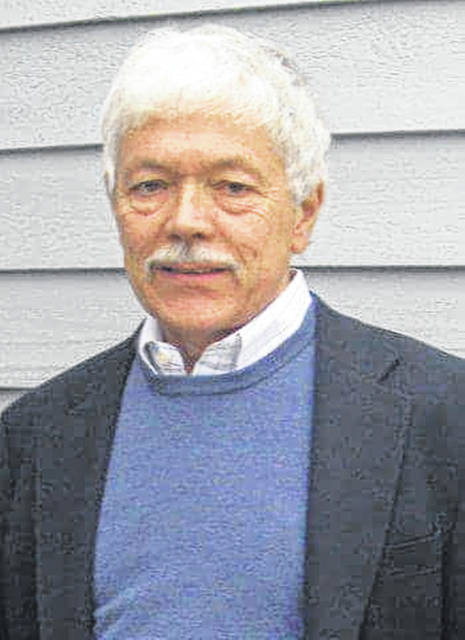

The Sermon on the Mount – the Beatitudes – is one of my favorite Bible passages (Matthew 5:1-12). It begins “When Jesus saw the crowds, he went up the mountain; and after he sat down, his disciples came to him. Then he began to speak, and taught them” about each of the Beatitudes, which I am citing without elaboration saying: Blessed are the poor in spirit, those who mourn, the meek, those who hunger and thirst for righteousness, the merciful, the pure in heart. But especially important for me is verse 9, “Blessed are the peacemakers for they will be called children of God.” Being peacemakers is a special Christian calling in a world filled with strife, conflict, war and violence.
Since 2005, I have worked closely with others to address the Israeli-Palestinian conflict as a critical issue that needs our leadership in Christian peacemaking. My journey began as the result of my deep involvement in the Columbus Jewish community. The conflict became a topic of discussion, and the Jewish community later sponsored me on a trip to Israel in 2006. My next trip was to attend a 2007 peacemaking conference at the Palestinian Lutheran International Center in Bethlehem. I will be visiting Israel and the Palestinian territory again in early April.
I can hear the responses already from many readers: why are you working on that, the conflict will never be solved; it has been going on for 2,000 years … it is futile. However, the roots of the conflict stem from 20th century issues; escalating with the creation of the State of Israel in 1948 and becoming much more critical after the 1967 Six Day War. It is a conflict over land and resources, Palestinian statehood, Israeli security, Israel’s right to exist, and the presence of holy sites. Although there are religious dimensions involved and three faith traditions — Judaism, Islam and Christianity — it is not primarily a religious conflict.
My work on this issue has included involvement with Jewish organizations such as the old-line Americans for Peace Now and J Street, the more recently formed pro-Israel-pro-peace organization, which includes many Jewish college students who identify as Zionists. I have attended most of the J Street national assemblies in Washington, D.C., always learning a lot about the complexities of realizing peace in the Holy Land, and going on the Hill with the Ohio delegation for peace advocacy.
However, my primary work has been with Churches for Middle East Peace (CMEP.org), created in 1984 to represent “mainline” denominations. CMEP is engaged in two dimensions of peacemaking for the Holy Land. The first is education — working with organizations, primarily churches, that want to learn more about the history and the complexity of the Israeli-Palestinian conflict. The second dimension is advocacy, including visits to members of Congress and their staff members. Although CMEP’s focus has always been support for the two-state solution, we also advocate for issues such as, recently, the restoration of U.S. funding for Palestinian refugee education, food, health care and West Bank infrastructure that was reduced by the current administration by approximately $300 million. Termination of this funding, which was effective Feb. 1, has not only created a humanitarian crisis for Palestinians, but increased security risks for Israel.
Working as a peacemaker can often seem like a hopeless cause, but with hope and grace as guides, I keep in mind two thoughts: “God’s Work, Our Hands” is a message of my denomination, the Evangelical Lutheran Church in America (ELCA), reminding us that as Christians we are freed to serve and love our neighbor; and second: as a Palestinian Christian once said in a workshop: “India and Pakistan achieved independence; apartheid was ended and democracy established in South Africa; and the Good Friday Agreement ended the Troubles in Northern Ireland — my Christian hope assures me that we will eventually resolve this conflict.”


